A better future for my children is the least we all expect. Ask anyone, regardless of their current situation, and they will utter words to that effect. But, unfortunately, many in the West take this for granted. Those in developing countries or countries with conflict can only dream of a future where their kids are given an opportunity.
Part two of my book reviews for Black History Month UK 2022, following on from my first, ‘Drawbridge Britain – Enoch Powell: Racial Intolerance Should Be Taught To Children.’ I will introduce you to a special lady, the great-grandmother on who this novel is based.
Margaret Walker, the author of the book, knew that as a black female, the odds were always stacked against her. The cards were always going to be in the house’s favour. Only dedication and blindness can ever make it possible for a black female, leading her to be a successful writer. Spirit gained through the bloodline of her great-grandmother.
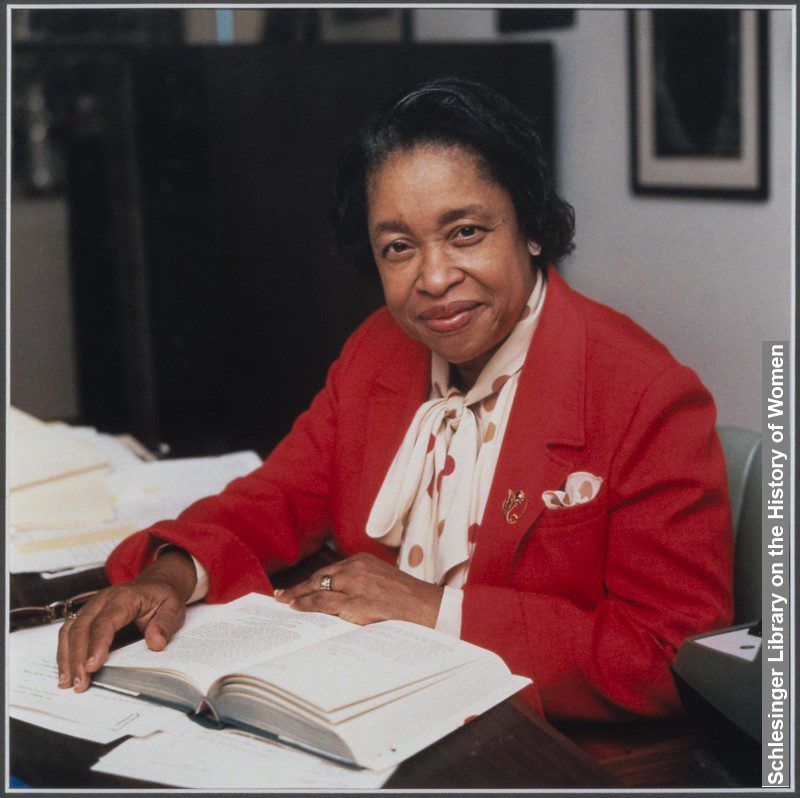
The journey of the book
Margaret Walker’s historical novel ‘Jubilee’ is based on a story of a mixed-race slave during the American Civil War (12 April 1861 – 9 April 1865). The mixed-race slave happens to be her great-grandmother. The journey to complete the novel started in 1934 when she was 19 years old at University.
Finally, in 1965 the first draft was completed, some 30 years after she started. In the intervening years, she gained a master’s degree and published a book of poetry called ‘For My People‘ (1942). In that timeframe, she taught at the University, got married and raised four kids.
As this was a historical novel, she continued to research and write it whenever she could find time to fit it in. However, time was precious, which limited how much she could dedicate to ‘Jubilee’. It was reported that between 1955 and 1962, she did not pen a single word.
She hatched a plan in agreement with her husband and children. Where she would return to University to complete the book. The book would serve as her dissertation. With an agreement with her family and the pressure of needing to submit her dissertation, plus long working hours, she could finally complete the book.
She spoke about working from seven in the morning until 11 at night, only stopping for lunch. She pushed herself physically and mentally so hard that she lost 20 pounds (9kg). When asked about the impact the book had had on her, she replied:
You just become part of it, then it becomes part of you. Working, raising a family, all of that becomes part of it. Even though I was preoccupied with everyday things, I used to think about what I wanted to do with Jubilee. Part of the problem with the book was the terrible feeling that I wasn’t going to be able to finish it.
And even if I had time to work at it, I wasn’t sure I would be able to do it in the way I wanted. Living with the book over a long period of time was agonising. Despite all of that, Jubilee is the product of a mature person.
When I started out with the book, I didn’t know half of what I know about life. That I learned during those 30 years… There’s a difference between writing about something and living through it. I did both.
A better future for my children offered motivation for the book
Margaret Walker wanted to tell the story of her great-grandmother Vyry. Her real name is Margaret Duggans Ware Brown; she was a slave. She dreamt and wished to have her own home and an education for her children, stressing a better future for my children.
With the Civil War in America, these dreams seemed distant. However, she fought and fought; in the end, freedom was hers. Margaret Walker wanted to demonstrate the impact of slavery on individuals who all had dreams of gaining their freedom.
The book almost represents a Civil War novel of a woman whose life was implanted in a Georgian plantation field pre-Civil war. Instead, Jubilee is a unique novel that provides a first-time account from the viewpoint of a slave through the Civil War.
Vyry, born the daughter of a white plantation owner in Georgia, grew up on the plantation of John Dutton. John Dutton (plantation owner) kept an eye on her, but it did not spare her harsh treatment. She was never sold but was still a slave.
Margaret Walker wrote the book from the memory of her grandmother Elvira Ware Dozier.
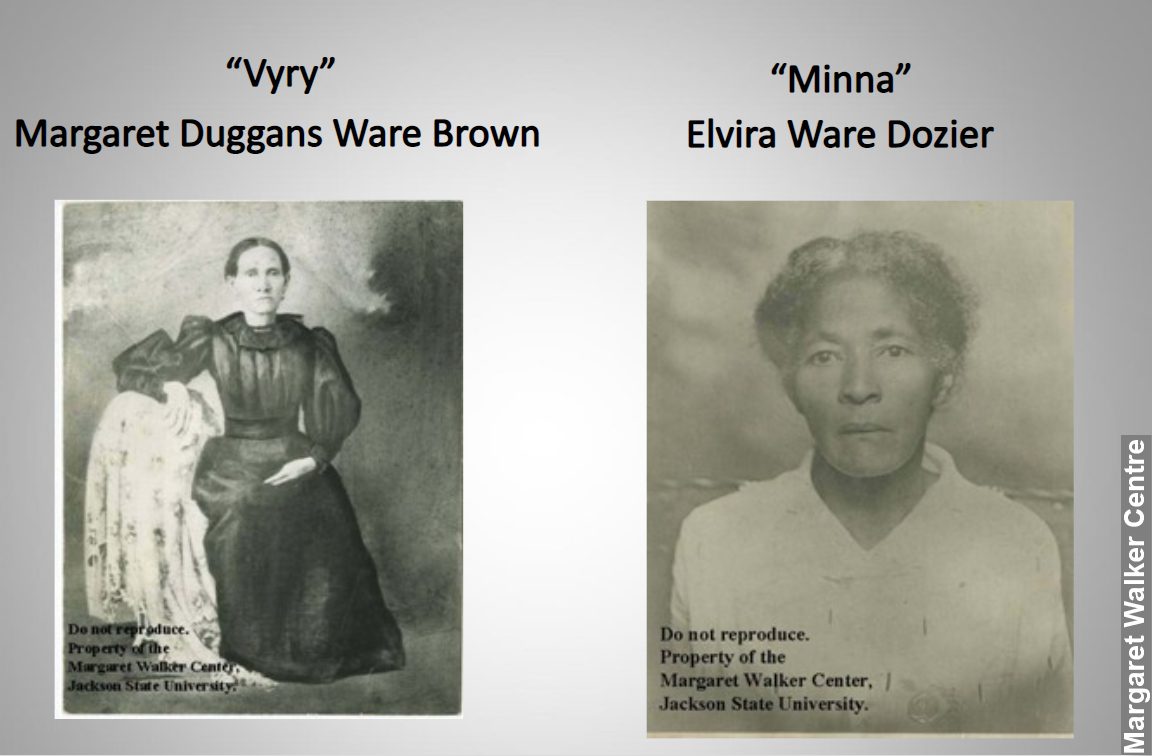
Vyry’s family and early life
Vyry’s mum was called Hetta, a slave on the Dutton plantation. As she lay in bed sick, those around her were trying to work out her age. After much deliberation, they suggested that she could have been twenty-nine years old.
No surprise with total disregard for human life, Hetta was given as a gift by Sir Dutton to his child John Morris Dutton when he was young. The dad did not want his son to spoil the innocence of a young white girl, so he gave the best-looking slave girl to his son. Hetta had had John Dutton’s kids from when she was very young. Between John Dutton and her later husband (Jake), Hetta had given birth to fifteen children, all single births. John Dutton was a tall sandy hair blond white man around the age of thirty-five years old. He had grey-blue eyes and liked to hunt and fish.
The doctor that came to check on Hetta told John Dutton that she was dying. He went to Hetta’s cabin to see her. He could see that she was dying and asked his black slave lover if there was anything he could do for her. She told him she wanted to see her last-born child, Vyry, before she died. He agreed and sent for her.
As he got older, John Dutton finally married a young lady from a good family in Savannah called Salina. To preserve his lover for his use, John Dutton decided to give Hetta a slave called Jake to marry. Jake did not know that his new wife was the master’s girl on the side. When he found out, he was upset with a sour dry taste in his mouth. But what could he do?
Jake respected his wife dearly; she had been a great wife to him. Images of his wife being broken in and passed onto him flashed in his mind. He also knew that whilst he was in the fields, the master was with his wife. Jake was also aware that once his kids came of age, the kids would be sold off. He knew that the only reason he was still on the plantation was Hetta. When she died, he and the last born would be sold. The burden of losing your wife is bad enough for anyone. The guarantee that you will be separated from your child was unimaginable.
Salina went on to have two kids for John Dutton. After those kids, she informed him that she did not want to go through the roughness of pregnancy again. During those pregnancies, whilst Salina suffered from morning sickness, John Dutton went to Hetta for his entertainment.
When Vyry was born, John Dutton was red-faced when he saw how white she was with sandy hair. This was in contrast to the beautiful jet-black skin of Hetta. When Salina saw Vyry, she went into crying fits and throwing things around. Finally, it was decided by many of the older black ladies on the plantation to take Vyry away from both Salina and Jake, or either of them may kill Vyry.
Mammy Sukey (an old wise black lady) cared for all the bastard kids from John Dutton until they were old enough to work. She had been looking after Vyry and returned to the plantation with the young two-year-old to see her mother before she passed away.
John Dutton and Salina had a daughter called Lillian, around the same age as Vyry. They looked very much alike. They could easily pass for twins. Often when John Dutton’s bastard kids came of age, they worked in the main house. The prospect of this happening to Vyry did not please Salina.
As they all waited for Hetta to pass away, their minds were on what would happen to Vyry. Then, finally, Hetta took her last breath around 4am as the field workers were getting up for work.
Vyry’s journey into adult life
With jealousy and hatred, Salina (big Missy Salina) orders Vyry to become Lillian’s maid. She suddenly went from being a friend and a playmate to being Lillian’s maid. The innocents of children can be seen in what Lillian thought of her best friend in the early years;
Vyry’s my sister, and I love her dearly, and she loves me, too, now don’t you, Vyry?
But reality set in. Vyry found her first day in the big house as a working maid confusing and disturbing. She needed a real direction as to what she was doing. Her first night away from Mammy Sukey was hard. She found herself lying on a pallet at the foot of Lillian’s bed.
Big Miss, in her mind, knew what she planned on doing to Vyry when she asked for her to come into the big house. She wanted to cause as much pain as possible, knowing that Vyry was her husband, John Dutton’s daughter. So, on her first day, big Miss made it as hard as possible for the little girl. She slapped and kicked her multiple times.
This was the daily life for Vyry when she moved into the big house. With the help of Aunt Sally (house chef), she could adjust whilst avoid trouble with big Miss. However, this did not prevent big Miss from throwing stale pee from Lillian over her head.
In the early days in the house, Vyry observed old Grandpa Tom being murdered. Old Grandpa Tom looked after John Dutton’s stables. Grimes (the overseer) demanded that old Grandpa Tom give him two of John Dutton’s thoroughbred horses. He made this request as an overworked mule had died in the fields from heat exhaustion.
Grimes wanted to use one horse to get the blacksmith from town and the other to replace the mule. When old Grandpa Tom said no, John Dutton would not be happy with him if that happened. Grimes beats old Grandpa Tom to almost death and finally shoots him in front of everyone, point blank in his head.
Vyry ran out to help him and fan away the flies, but it was no use. He was dead. So she was hissed away by Aunt Sally to get away if she did not want the same fate to happen to her. This was hard for a young girl to take, but she tried to carry on as best as possible.
But soon, the darkest day of her young life was to come. Out of nowhere, John Dutton, coercive by his wife Salina, decided to sell Aunt Sally. This was the best cook they had ever had. The mother figure who had been teaching Vyry. When they arrived in the morning, unaware of what was to come, big Miss ordered Aunt Sally to get her things together. First, she was to be taken to Savannah by boat, then to New Orleans, where she would be put on the auction block and sold to the highest bidder.
Vyry did not cry when she was leaving. It had not sunk in. Then, as it became real, she started to shake and cry. She was still very young and did not really understand what was happening. She decided to leave with Aunt Sally until big Miss gave her an enormous slap to bring her back to reality.
Vyry also lost Mammy Sukey, the old acting grandmother who had looked after her since birth. Mammy Sukey died of old age, and now Vyry had no one around her to provide support and protection.
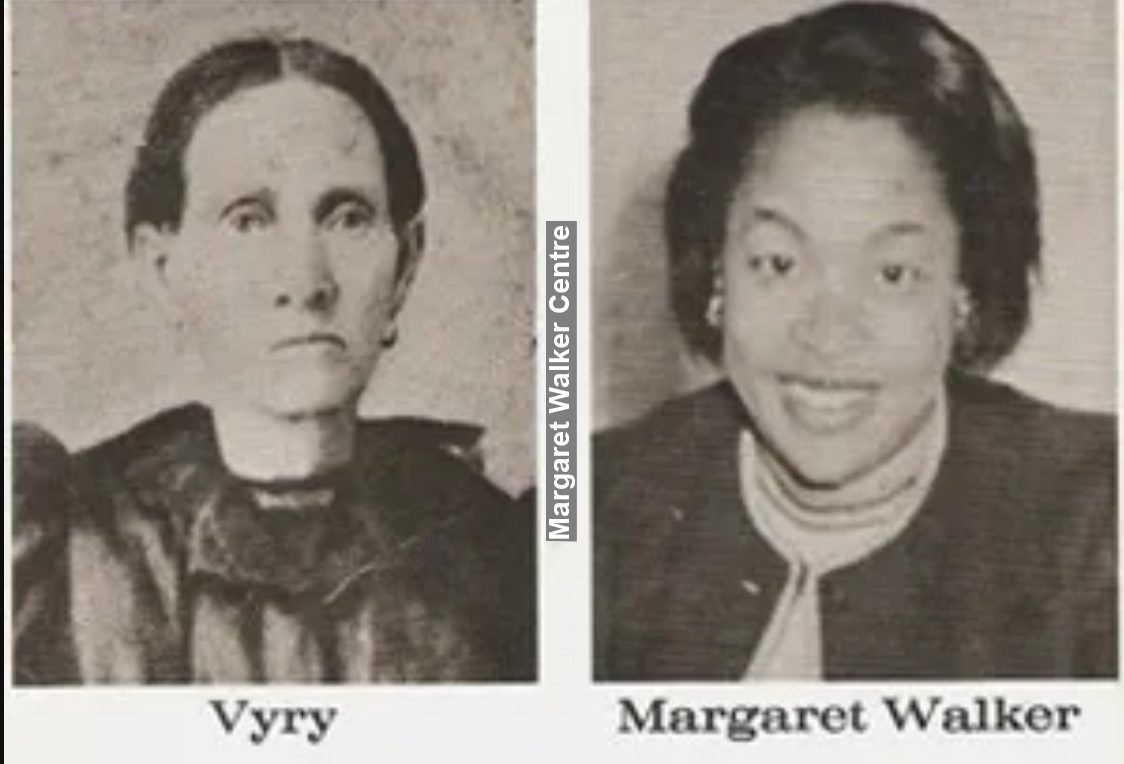
I may have a better future for my children, and I am starting to dream she may get freedom in her lifetime
A gentleman by the name of Randall Ware, who was born a freeman, would come into Vyry’s life. Randall Ware was a tall, handsome dark, skin man. He was a blacksmith who had come to Georgia with a sack of gold and registered himself a freeman. He paid taxes yearly to ensure he kept his status as a freeman.
Randall Ware had a white guardian called Randall Wheelwright. They had an unwritten trust in each other. Randall Wheelwright lived long enough to help settle Randall Ware in Georgia. When Randall Wheelwright passed away, Randall Ware inherited two hundred acres of land that Wheelwright had owned.
This was all recorded at the County Courthouse correctly, making Randall Ware a wealthy free black person. Ware had been the blacksmith Grimes had called to come and fix the broken wagon in the field, which led to him killing old Grandpa Tom.
When Randall Ware saw the beauty of Vyry, he was in love instantly. Vyry, who had experienced a lot, was only fifteen at the time. This was the first time desire had crept up on Randall Ware. He wanted to marry her so badly that he tried everything and promised to do everything he could to get her freedom.
He knew that no matter what, every slave wanted their freedom, and this promise to her would ensure he could be with her. So, as a sixteen-year-old girl, she spent her days working in the hot kitchen and jumping and singing to the orders of big Miss. And in the nights, she did her best to avoid thinking about Mammy Sukey or Aunt Sally and how Grandpa Tom had died.
A pleased time ensued as Vyry and Randall Ware would establish a love affair. She no longer had to deal with the memories of Mammy Sukey, Aunty Sally, or Grandpa Tom’s horror. Instead, she would spend time with Randall Ware in the cornfields at night. In hot passion, proving that covetousness cannot be suppressed in slavery, imprisonment and oppression.
Motherhood
With motherhood around the corner for Vyry, big Miss tried to arrange for her to be sold on multiple occasions. But John Dutton (her father) would provide reassurance that all would be well for her. Yet, deep inside, she was worried about bringing a child into this horrible world of slavery. How her life would be and if freedom would come.
As she had told Aunt Sally, I want a better future for my children. She wished for heavenly intervention to ensure that her child would not be slaves forever. So her first child was born, a fine blend of mother and father. He was a pleasant tone of brownness. Vyry and Randall Ware called him Jim.
Usually, big Miss did not trouble him, and grandfather John Dutton avoided meeting him (possibly due to guilt?). Now at Seventeen years old, a mother, she was a woman. Her childhood and adolescents were now in the rearview mirror.
Before Vyry turned twenty, she had lost a child and had another child they called Minna. Vyry displayed no emotions regarding losing the baby. Instead, she had come to accept all the wrong things. A part of a wretched life.
Life had become hard for slaves and free black people in the South. Randall Ware was closely followed, as the whites believed he was among those trying to end slavery. Randall Ware devised a plan for Vyry to meet him late at night so they could run away. The initial plans were to make the escape without the kids. They would come back for them once slavery ended. But Vyry could not go along with this.
She tried to escape with both kids. The night was filled with rain, and the underground was wet and muddy. The darkness of the night faded, and with daylight on the horizon, her hopes of escaping vanished. Unknown to her, she had been followed by Grimes, the overseer and his assistants. Vyry knew her faith when they returned to the plantation. She was secured to the whipping post and given seventy-five lashes on her naked back.
She was lashed with the whip of rawhide coachwhip, often used to hurry horses. The whip slashed her back and opened her back and between her breasts. Her father, John Dutton, did not intervene to stop the lashing. After three days, the fever left her a little and allowed her to nurse herself back and think clearly.
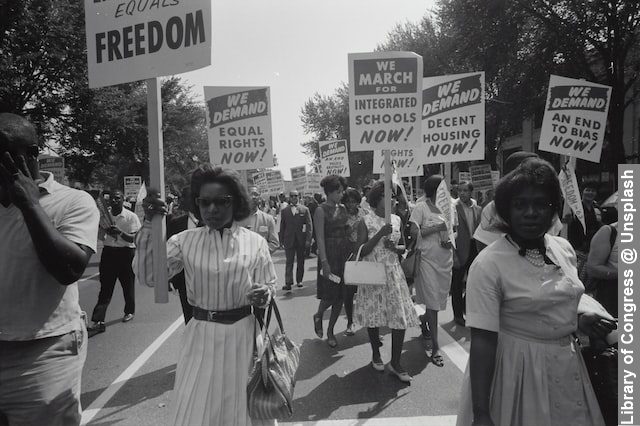
The civil war years presented an opportunity for a better future for my children
Those in the North were dead against slavery in the South and felt that it needed to end. So when Republicans won the election with Abraham Lincoln, the South felt threatened. The seven Southern States formed the Confederate States of America to combat this threat.
At the time, John Dutton took an active role in politics. On one of his many journeys, the horse-driven coach flipped, and he badly damaged his leg. This would go on to kill him not long after. Before dying, he had told Vyry that he would set her free when he died. This was the custom for some slave owners to free slaves when they passed away. But John Dutton was almost mocking Vyry, and she did not believe it in any case. There was never a chance that big Miss would allow that part of his will to come to light.
Johnny Dutton (eldest boy) was in line to take over. However, he decided against this and preferred a life in the army. He took up a training role, and when the war started, he went to fight for the South. Not long into the war, Johnny Dutton was hurt and came home and soon passed away. This left only big Miss and Lillian. If they thought the worse was over, they were wrong. Kevin, who was married to Lillian, was forced into fighting for the South. He came back home with an injury and soon also died from it.
In her grief, big Miss, a stoic supporter of the South’s slavery system, kept herself busy making Confederate flags despite losing her husband, son Jonny and son-in-law, Kevin. During this war period, many slaves on the plantations around the South ran away to join the North in fighting the South.
With death hanging over the Dutton household, soon it would take its next victim. Big Miss, with all her brashness, would soon succumb to the heartache of losing so many of her household. And her beloved South was losing the war also. At least big Miss got her last wish: never to live to see slaves be set free and live amongst white people.
With all her terrible childhood experiences, Vyry was still full of heart. She did not have a single defective bone in her body. And when Lillian found herself alone with just her kids, she turned to Vyry and said, please do not leave me alone. Now I have nobody. Vyry embraced and comforted a depressed Lillian. How many people honestly can say they would have had such a heart after experiencing so much pain at the hands of a slave owner?
Proclamation and end of slavery
The war was rumbling to a bitter end when the guns were finally silent. Vyry tried to lift the spirits of her kids and Lillian’s kids. She cooked as she usually does and created the Christmas that they always had. This is now a lady working from the heart and not at the hand of a master.
The day had come when a commanding officer knocked on the door of Lillian and enquired how many slaves she had. He requested that all the slaves come into the yard. He read President Lincoln’s proclamation freeing them from slavery. As Lillian stood in the doorway with her kids, Bob and Susan. The officer read the proclamation to all the slaves that were left.
Vyry did not respond, but the automatic tears streaming down the side of her cheeks said it all. Finally, the day she had wished for had come; they were no longer slaves. That opportunity for a better future for my children was now a step closer.
The soldiers looted the Dutton plantation and all its food, animals and things of value. When they left, the slaves that had been freed also came to the house to take what was left. As Vyry spoke with people she knew, her mind was taken off Lillian and her kids. It was not until early morning, when Lillian’s son came calling for Vyry that his mum was not well.
When Vyry went to the big house, she noticed that Lillian had been assaulted and was not responsive. Lillian would go on to lose her mind. The other servants all left that night, but Vyry decided to stay and look after Lillian until she could get her family to come and take her and the kids. The kindness of Vyry, after all that Vyry had experienced, did not waver once. In her eyes, she did what God would have wanted her to do.
She managed to call for the doctor to come and help. And they arranged to send a message to Lillian’s family to come and collect her and the kids. This doctor, who favours slavery, was amazed how a free slave would still want to serve a member of a family that had enslaved her.
During all the mahram of the soldiers coming, the free slaves loot the place. A gentleman called Innis Brown, who had turned up with the freed slaves, decided to stay and protect Vyry and her kids. It turned out that he had no place to go to and no one left in his life. After agreeing to do so, she would soon marry him if her husband Randall Ware did not show up after the war ended.
Lillian’s family came to collect her and her kids. Vyry and Lillian had hidden a lot of valuables when the war was coming to an end. They had heard that the soldiers were looting and stealing things from wealthy Southern plantation houses. So as Vyry was helping them pack the things to leave, she told them about all the hidden valuables.
Miss Lucy could not believe her honesty. No one knew about them, especially now that Lillian had lost her mind. Innis Brown (now husband) asked why she had told them. Her response was simple, they were not mine, and I am a person of God. Miss Lucy told her after they had taken what they could, she could take the rest to start her new life.
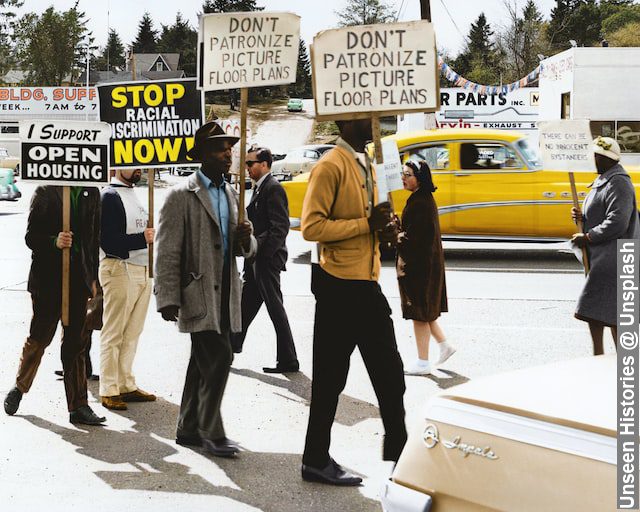
The hard road after slavery
Unbeknown to Vyry, Randall Ware did turn up at the Dutton plantation. At this moment, Vyry and her family had found a place to settle down. They had found farmland, built a home on it and planted crops. Innis Brown was very good at farming and handy with building and making furniture.
The place where they had built their new home soon flooded. They had to leave to find a new place to start again. Vyry was disappointed but accepted this as part of their lives. The new place they found was a location where lower-class whites lived. They had told Innis Brown that they were leaving and he could move in. However, they did not tell him the property belonged to a white plantation owner.
The owner would knock a week after they moved in, asking for the white family that lived there. When Innis told them they had left, the white owner said they could live there but had to pay rent. Or the alternative arrangement was that if they farmed the land, then they could split the income.
The owner was dishonest, having convinced them to sign a contract they could not read. When he came after the first harvest, he began to make up costs and fees. Being black, they could not argue but agree to pay. As soon as he was gone, Vyry told Innis they had to leave immediately. During the night, they packed up their things and left. For them, if this was the start of their relationship with him, then things would only get worse.
Ku Klux Klan
Soon they would find new high ground to lay clime to. They started farming on the land and built a beautiful house with windows on this plot. However, both Innis and Vyry were mindful of the place they stayed in. They did not want to be around their own people with no real-life ambition aside from drinking and partying. So they decided on a hilltop in the countryside.
While building their house, Innis Brown found work with a lovely, wealthy white gentleman. This gentleman practically owned almost everything in the town. They were looking for a cook, and Innis suggested they try his wife. They were blown away when they tried Vyry’s food. The wife loved Vyry and tried to help her find books for her kids to learn from.
Everyone who came into contact with Vyry could sense her pure heart. After meeting her, they wanted to help her in any way they could. Vyry was always very appreciative of the kindness that came her way.
Her heart would soon break once more. On their way back from visiting some friends, they saw a half-dozen white-sheeted and hooded men. They lifted up a cross-like structure, leaned it against the newly built house and set it on fire. Their new house went up in flames, and there was nothing they could do.
They decided in the morning to leave, as the Ku Klux Klan would not stop until they killed someone. Some five years after freedom, Vyry and her family were very unsettled. Her kids were no closer to going to school, and her thoughts of a better future for my children appeared further.
With the help of government black soldiers, they found new land in a new town, and Innis Brown wanted to build a new house. But Vyry had learned from bitter experience that the white world around them deeply resented blacks settling in the lands around them and building new homes and having farms.
What favoured Vyry, as she went to the white neighbourhood to sell her vegetables, was that all the whites thought she was white. Due to her mixed raced light skin, she looked like a lightly tanned white lady. This made selling to the whites an easy task.
Innis Brown was unhappy that Vyry wanted to keep returning to these white areas to sell to them. He was worried about her safety. In town, he hears the whites speaking badly about black people. To Vyry, there was no option, as money was low. During one of these trips, Vyry was approached by a young white man, asking if she could help him.
The gentleman’s wife was about to die delivering a baby when she got to the house. Vyry helped save her and her baby and touched them with her generosity. They offered to pay her, and she refused. So instead, she helped clean the house and told them she would be back in the morning to help them. They were so appreciative of her help.
When she went home and informed her husband, he was not joyful. On the contrary, his level of unhappiness increased as she told him that she would go back in the morning to help them. He was not very supportive of her kind gesture to the strangers. But Vyry did not listen and went the following morning to help.
The white lady was talking negatively about black people while she was there. When Vyry told her that she was black and that her father had been white. The lady could not believe it. She said, but you look whiter than me. At that moment, Vyry decided to tell her all the struggles she had been having due to her colour.
The lady was shocked, and when her husband returned with her mother, she told him that Vyry was black. The lady’s mother was surprised but did not care. Instead, she was grateful that she had saved her daughter and grandchild. The mother then spoke about how black women were better at delivering babies than whites. She said that many whites lost their kids during delivery, while blacks hardly lost any of their kids.
Payback for a kind heart
They thanked Vyry for all the help she had given them and said sorry for all the trouble she had been experiencing. They wished her luck, and she left, feeling happy for herself and sorry all the same. That evening Vyry and her family were sitting outside their tent when they noticed two white men coming. They sent the kids inside the tent and panicked about what would happen.
It turned out to be the lady’s husband that Vyry had helped deliver her baby. They said that they were looking for the Brown family from a distance. When they came closer, he noticed Vyry. He told her that he was very sorry for all the trouble she had been experiencing. His wife had told him everything, and he wanted to speak with her.
He told Vyry that after hearing what the wife had told him, he went and spoke to the community. They had all agreed that if Vyry and her family wanted to stay in the town, they would not have any trouble from anyone in the town. They would be left alone.
He said that many people had just got married and were in the process of raising families. Many were expecting babies, and the community was fed-up with the death of either babies or wives. They needed someone that could help to deliver babies. The community felt that Vyry could help them. They can stay to help the community, and in return, they would leave them alone.
The husband was a builder and said that he and the rest of the community would come in a week and help Vyry and his family build a new house in a day. Vyry and Innis Brown could not believe their luck. As they went to bed, Innis said to her that it appeared that you had just built the family a house all alone. But, Vyry replied, her prayers had been answered by God.
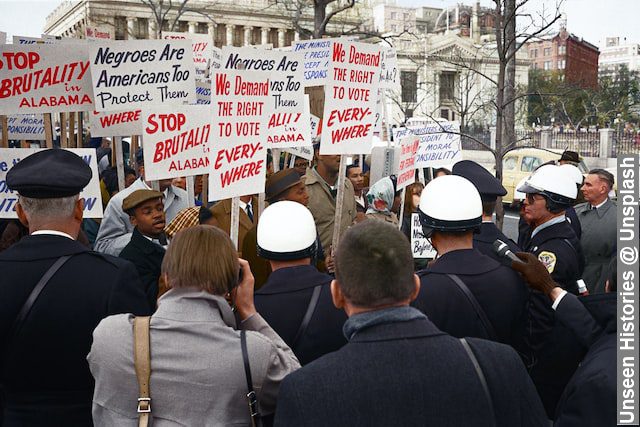
A better future for my children, a rainbow at the end of Suffering
All Vyry had known from the age of two was pain and grief. She has tried to escape all the pain in her life, but she has never been able to escape it. Dreaming of a better future for her children, but this was not coming. Locked in her mind and soul is all the violence and killings on the plantation when Grimes was driving and beating the field hands to death.
All the memory of the death of Manny Sukey, Grandpa Tom, the face branding of runaway Lucy, the burning of two old men to death, the plague, the hanging of two female servants, murder, and fire. She understood that as black, your life was not worth a copper cent with a hole in it.
Her pain went back to the war and all the bloody fighting, killings, and dying, the death of all her master’s family. The final assault on Lillian (which made her mind wondered for life). The trauma caused by the Ku Klux Klan. All the evil hatred she had felt before the new house was built.
Her life was starting to take shape. Randall Ware had finally managed to track the family down and came to take his eldest son Jim so that he could attend school and hopefully become a teacher.
When Randall Ware suddenly appeared, Innis Brown was uncomfortable, but after, both men and Vyry sat down and spoke all night. Things settle down. Randall Ware was bitter at how the white man treated the blacks. Whilst Vyry tried to see the good in people no matter the colour of their skin.
Randall Ware told Vyry that she had a kind heart because she shared the same blood as the white man. Vyry, irritated by this, replied that John Dutton was no father to her. He was simply the master. She got her colour as this is the way God had created her. Vyry pointed out to Randall Ware that she had nothing to do with him being black.
She told him that big Miss was nasty to her from the first day she stepped foot in the big house as a slave. That big Miss had emptied Miss Lillian’s pee-pot in her face. Had hung her up by her thumbs in a cupboard for a whole day. She slapped and kicked, insulted, and worked her like a dog.
Big Miss had stripped her naked and put her up for auction. They had kept her ignorant, so she could not read or write her name. Through it all, God has been her witness, and she bears no ill feelings to anyone. The old master was her daddy and never owned her for his child. She pleaded with him to let her marry a free man and let her go free, but he said no. He watched them whip her and said nothing. Vyry said she was a poor-coloured woman travelling through this sinful world.
I promise you this, I will not be able to tell you who whipped me that day. But I honestly believe that if any of those that treated me like dirt when I was a slave came today hungry, I would feed them all. God knows that I do not have any hate in my heart for anybody.
She believes in God, and God believes in trying to love and help everybody. As her husband, Innis Brown, put it;
Vyry is touched with a spiritual fire and permeated with a spiritual wholeness that had been forged in a crucible of suffering.
Vyry’s philosophy was simple.
You should always aim to be good and try to get along with people. You should always mind your manners and make friends with people. Friends and good manners will carry you where money won’t go.
Being born Lucky is better than being born rich because if you are lucky, you can get rich, but if you are born rich and not lucky, then you are liable to lose all you have.
Never be mean and ugly in your heart towards anybody. Remember, sweet ways are just like sugar-sweet. They catch more flies than vinegar.
This was the heart of a slave woman that dared to dream about a better future for her children. Yet, through it all, she stood by honesty and integrity. This is a book that I highly recommend. It provides a first-hand view of slavery and the American Civil War. If you are after Slavery knowledge and historical facts, this is your book!
If you are after an excellent way to live your life, look no further than Vyry!
Sources
- Mason Currey (2019), ‘Daily Rituals Women at Work’, Picador (Pan Macmillan)

